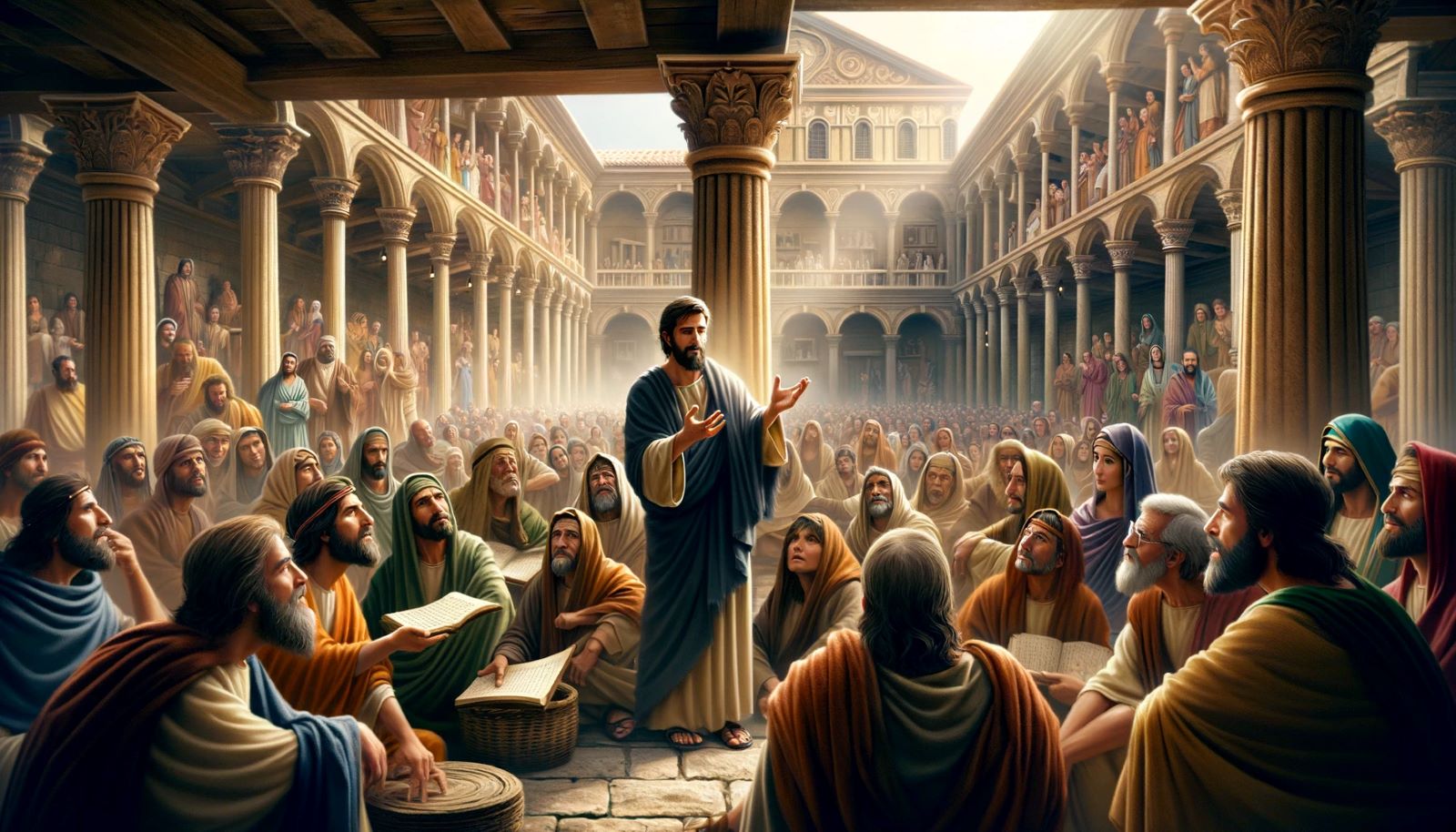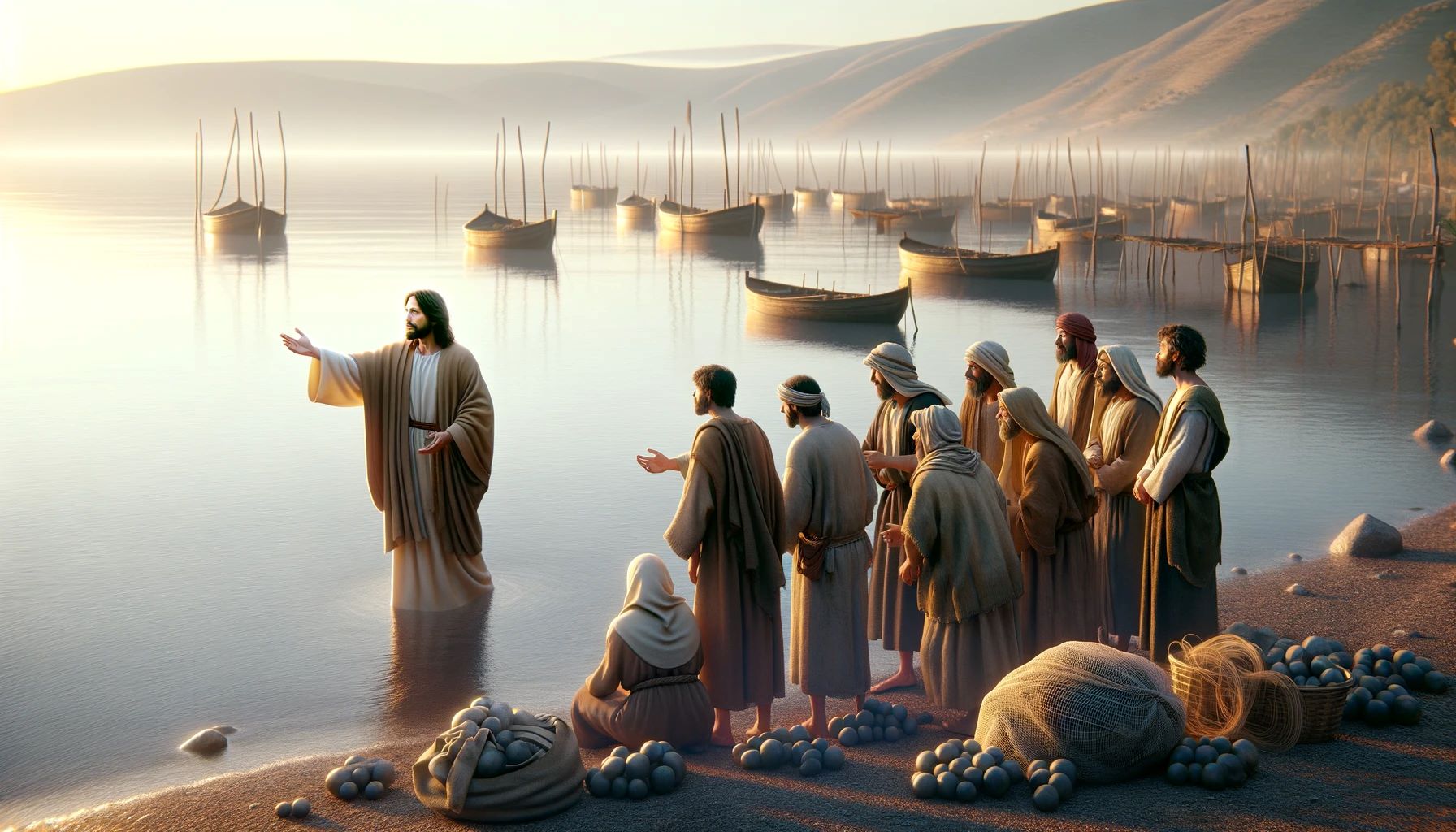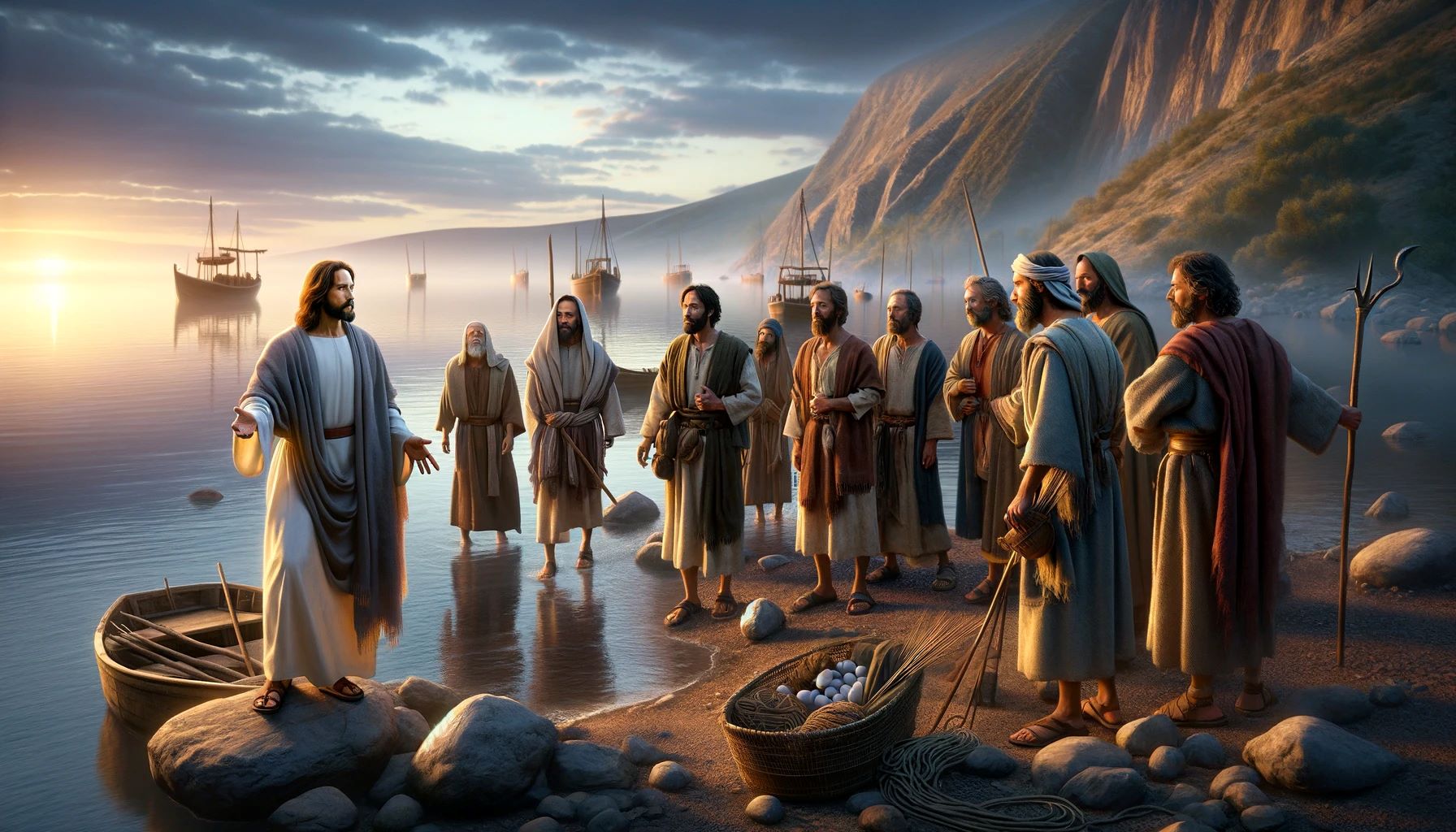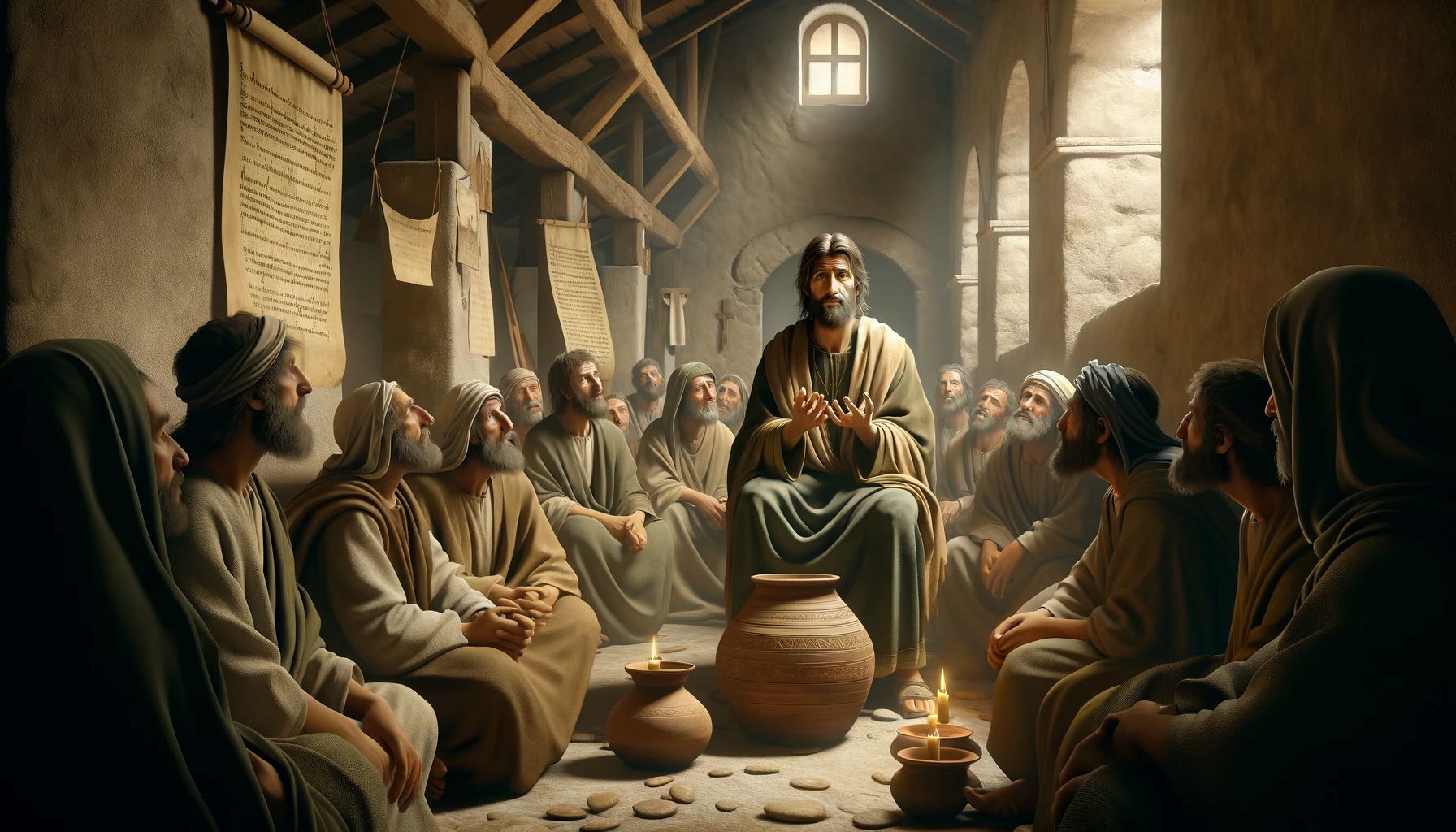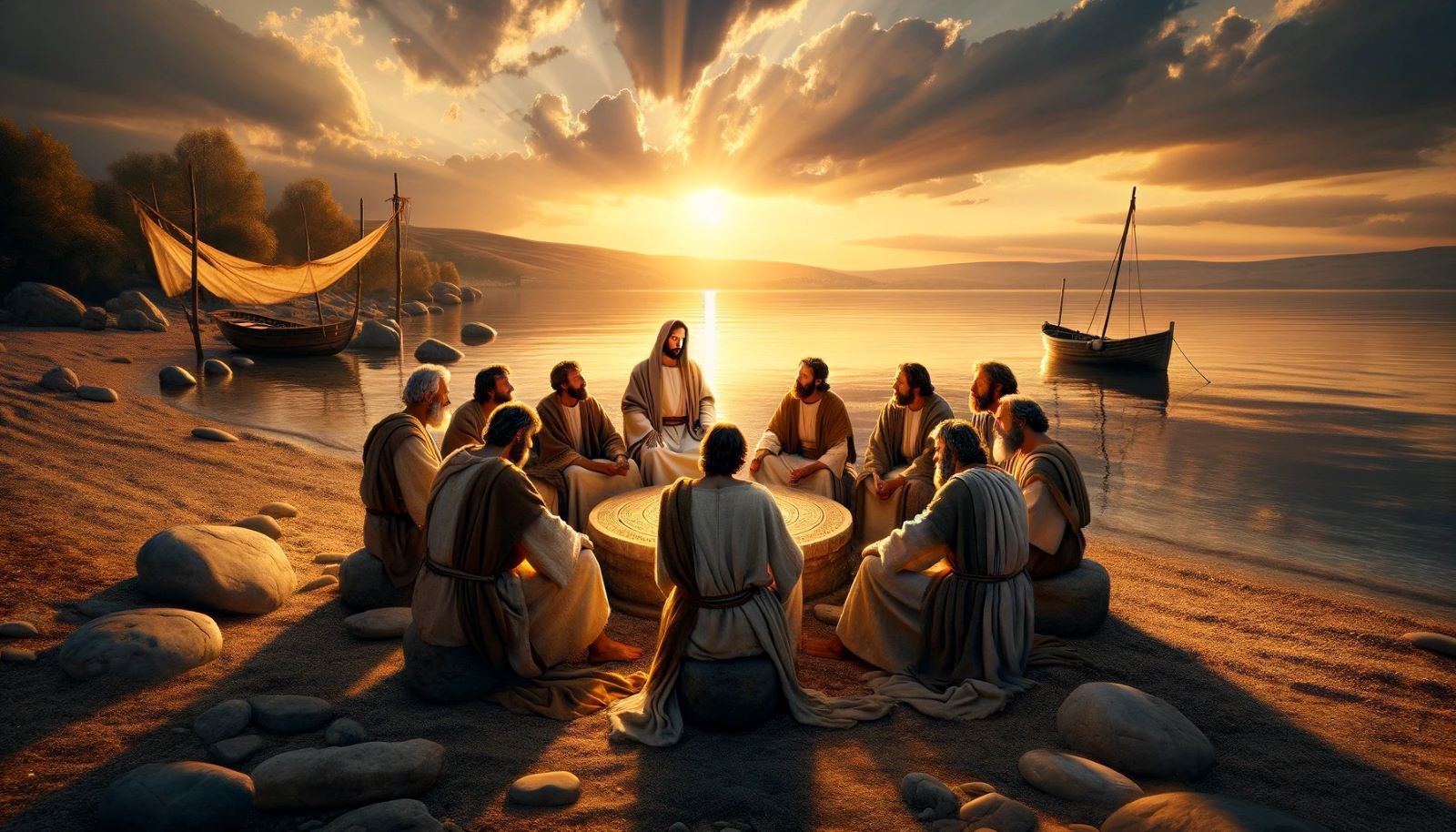Home>Bible Facts>What Apostles Were Fishermen
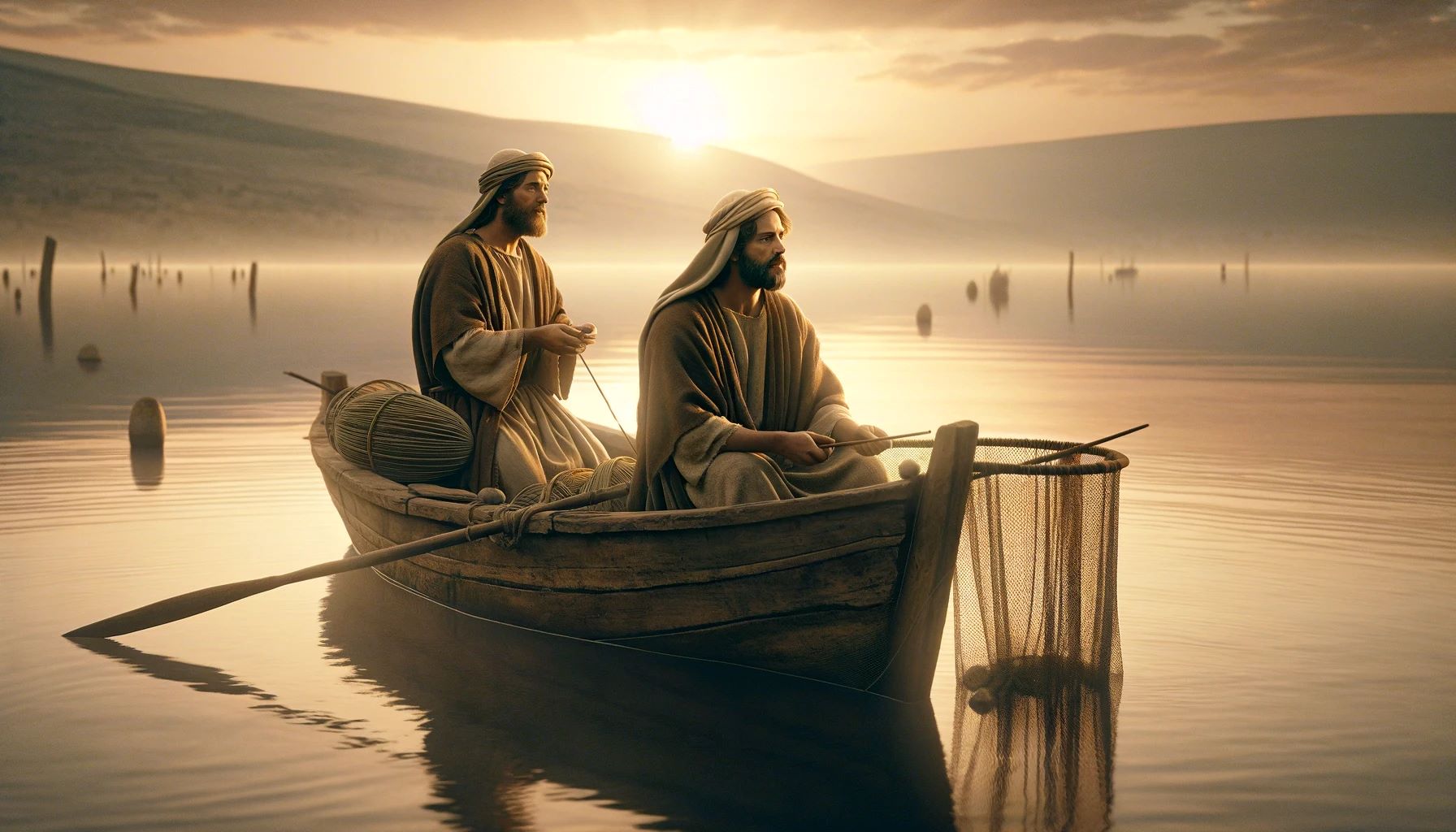

Bible Facts
What Apostles Were Fishermen
Published: February 18, 2024
Peter Smith, Editorial Director at Christian.net, combines deep insights into faith, politics, and culture to lead content creation that resonates widely. Awarded for his contributions to religious discourse, he previously headed a major organization for religious communicators, enhancing dialogue on faith's societal impacts.
Discover fascinating Bible facts about the apostles who were fishermen. Explore their unique backgrounds and roles in the early Christian church. Gain insight into their lives and contributions.
(Many of the links in this article redirect to a specific reviewed product. Your purchase of these products through affiliate links helps to generate commission for Christian.net, at no extra cost. Learn more)
Table of Contents
Introduction
The apostles of Jesus Christ were a diverse group of individuals, each with their own unique backgrounds and professions. Among them, several were fishermen, a profession that held great significance in the ancient region of Galilee. The choice of fishermen as apostles was not a mere coincidence; rather, it carried profound symbolism and purpose. Understanding the historical context and the role of fishermen in ancient Galilee provides valuable insights into the significance of this selection. In this article, we will delve into the world of ancient fishermen in Galilee, explore the fishing industry in first-century Palestine, and uncover the reasons behind the selection of fishermen as apostles by Jesus Christ. This exploration will shed light on the cultural, social, and spiritual dimensions of this pivotal aspect of biblical history.
Read more: What Were The Jobs Of The Apostles
The Role of Fishermen in Ancient Galilee
In ancient Galilee, the role of fishermen held immense significance, shaping the livelihoods and cultural fabric of the region. Situated around the Sea of Galilee, also known as Lake Tiberias or Lake Kinneret, the area was abundant with fish, making fishing a primary occupation for many inhabitants. The Sea of Galilee was a vital source of sustenance, providing not only fish but also water for irrigation and transportation. The fishermen of Galilee played a crucial role in sustaining the local economy and meeting the dietary needs of the population.
The profession of fishing was deeply ingrained in the social and economic dynamics of ancient Galilee. Fishermen were integral to the food supply chain, as fish constituted a staple in the diet of the people. The abundance of fish in the Sea of Galilee made it a prime location for fishing activities, and the expertise of the fishermen was essential in harnessing this valuable resource. Their daily toils on the waters of the sea were fundamental to the sustenance of the community, as they provided a consistent supply of fresh fish to the local markets and households.
Furthermore, the fishing industry fostered a sense of community and cooperation among the fishermen. It was not uncommon for them to work together, pooling their resources and knowledge to ensure successful catches. The collaborative nature of their work created strong bonds among the fishermen, contributing to the social cohesion of the region. Additionally, the skills and techniques passed down through generations underscored the cultural heritage associated with the profession, further solidifying the role of fishermen as integral members of ancient Galilean society.
The significance of fishermen in ancient Galilee extended beyond their economic contributions. Their deep connection to the sea and its bountiful resources imbued them with a profound understanding of nature and the elements. This intimate knowledge of the sea and its rhythms endowed the fishermen with a sense of wisdom and resilience, traits that were highly esteemed in the cultural ethos of the time.
In essence, the role of fishermen in ancient Galilee was multifaceted, encompassing economic, social, and cultural dimensions. Their expertise, camaraderie, and deep-rooted connection to the sea made them indispensable figures in the tapestry of Galilean life, laying the groundwork for the profound significance of choosing fishermen as apostles in the biblical narrative.
The Fishing Industry in First Century Palestine
In the first century, the fishing industry held immense importance in the region of Palestine, particularly around the Sea of Galilee. This vital economic sector not only provided sustenance for the local population but also contributed significantly to the broader trade and commerce of the area.
The Sea of Galilee, with its rich aquatic resources, served as the focal point of the fishing industry. Fishermen utilized various methods to harvest the abundant fish stocks, including casting nets from boats and employing simple yet effective fishing gear. The strategic location of the sea, nestled amidst the rolling hills of Galilee, facilitated a thriving fishing environment, sustaining a robust industry that catered to the needs of the populace.
The fishing industry in first-century Palestine was characterized by its reliance on traditional techniques and communal cooperation. Fishermen often worked in teams, leveraging their collective knowledge and experience to optimize their catches. This collaborative approach not only enhanced the efficiency of fishing operations but also fostered a sense of camaraderie and mutual support among the fishing communities.
Moreover, the fish caught from the Sea of Galilee served as a primary source of protein for the local inhabitants. The abundance of fish not only met the dietary requirements of the people but also provided a valuable commodity for trade. Fish were preserved through various methods such as salting and drying, enabling their distribution to distant markets and neighboring regions. This trade in fish not only sustained the local economy but also facilitated cultural exchange and economic interdependence with surrounding areas.
The fishing industry also played a pivotal role in the social fabric of first-century Palestine. It provided employment opportunities for a significant portion of the population, supporting livelihoods and fostering a sense of community among the fishermen and their families. The skills and knowledge passed down through generations formed the bedrock of the fishing communities, preserving a rich heritage of maritime traditions and practices.
In essence, the fishing industry in first-century Palestine was a cornerstone of the region's economy, culture, and social dynamics. Its influence extended far beyond the shores of the Sea of Galilee, shaping the daily lives and interactions of the people while contributing to the broader tapestry of ancient Palestinian society. This vibrant industry set the stage for the profound significance of choosing fishermen as apostles, reflecting the deep-rooted cultural and economic relevance of their profession in the biblical narrative.
The Call of the Apostles
The call of the apostles by Jesus Christ holds profound significance in the biblical narrative, particularly in the context of selecting fishermen for this pivotal role. The Gospels recount the transformative moment when Jesus approached several fishermen by the Sea of Galilee and called them to become his disciples. This extraordinary encounter marked a turning point in the lives of these fishermen, as they were summoned to embark on a spiritual journey that would forever alter the course of history.
The call of the apostles unfolded amidst the backdrop of the bustling fishing activities on the shores of the Sea of Galilee. Jesus, walking along the shoreline, encountered Simon Peter and his brother Andrew, who were diligently tending to their fishing nets. In a moment that would resonate through the ages, Jesus uttered the compelling invitation, "Come, follow me, and I will send you out to fish for people" (Matthew 4:19, NIV). This simple yet profound call encapsulated the essence of discipleship and the transformative power of faith.
The significance of this divine summons lies not only in its immediate impact on the lives of the fishermen but also in its symbolic resonance with their profession. By choosing individuals who were intimately familiar with the toils and rhythms of the sea, Jesus employed a metaphor that resonated deeply with their daily experiences. The imagery of "fishing for people" drew a parallel between the fishermen's expertise in capturing fish and their future mission of spreading the teachings of Jesus and gathering followers into the fold of faith.
The call extended beyond Simon Peter and Andrew, encompassing other fishermen such as James and John, who were also beckoned by Jesus to become fishers of men. This collective calling of fishermen to discipleship underscored the inclusive nature of Jesus' ministry, transcending societal boundaries and embracing individuals from diverse walks of life.
The call of the apostles exemplifies the transformative power of faith and the profound impact of divine intervention in the lives of ordinary individuals. It serves as a testament to the universal invitation to follow a higher calling, transcending earthly pursuits and embracing a spiritual mission that resonates across generations.
In essence, the call of the apostles, particularly the fishermen, embodies the timeless message of hope, purpose, and spiritual awakening. It signifies the convergence of earthly vocations with heavenly mandates, illuminating the path for all who are called to embark on a journey of faith and discipleship.
The Significance of Choosing Fishermen as Apostles
The selection of fishermen as apostles by Jesus Christ holds profound symbolic and spiritual significance within the biblical narrative. The deliberate choice of individuals immersed in the fishing profession was not arbitrary; rather, it carried profound layers of meaning that resonate with the core tenets of discipleship and the transformative message of Jesus.
By choosing fishermen as apostles, Jesus infused everyday labor with spiritual metaphor, elevating the mundane to the sublime. The familiarity of the fishermen with the rhythms of the sea and the toils of their trade provided a rich tapestry for conveying profound spiritual truths. The imagery of "fishing for people" resonated deeply with their experiences, symbolizing the call to gather souls into the embrace of faith, much like drawing in a bountiful catch from the depths of the sea.
Furthermore, the selection of fishermen as apostles exemplified the inclusive nature of Jesus' ministry. It transcended societal norms and expectations, embracing individuals from diverse occupational backgrounds and affirming the universal invitation to partake in the spiritual journey. The fishermen, with their humble yet vital role in sustaining the community, became living embodiments of the transformative power of faith, demonstrating that no vocation or circumstance is beyond the reach of divine calling.
Moreover, the choice of fishermen as apostles underscored the principle of equipping the unlikely for extraordinary purposes. Their ordinariness and earthly profession were transformed into instruments of divine grace, emphasizing that the call to discipleship transcends worldly status or prestige. This profound message resonates across time, offering hope and inspiration to all who may perceive themselves as ordinary, reminding them that they are chosen vessels for extraordinary missions.
In essence, the significance of choosing fishermen as apostles reverberates with timeless truths of faith, purpose, and inclusivity. It illuminates the transformative power of divine calling, infusing the ordinary with extraordinary significance and inviting all to heed the universal call to discipleship. The fishermen-turned-apostles stand as enduring symbols of the profound impact of faith on the course of human history, inspiring generations to embrace their unique callings with unwavering dedication and spiritual fervor.
Read more: What Were The Apostles Real Names
Conclusion
In conclusion, the selection of fishermen as apostles by Jesus Christ holds profound significance, weaving together the rich tapestry of ancient Galilean life, the vibrant fishing industry of first-century Palestine, and the transformative call to discipleship. The choice of individuals immersed in the fishing profession was not coincidental; rather, it carried deep layers of symbolism and spiritual resonance.
The role of fishermen in ancient Galilee was multifaceted, encompassing economic, social, and cultural dimensions. Their expertise, camaraderie, and deep-rooted connection to the sea made them indispensable figures in the tapestry of Galilean life. The fishing industry in first-century Palestine was a cornerstone of the region's economy, culture, and social dynamics, shaping the daily lives and interactions of the people while contributing to the broader tapestry of ancient Palestinian society.
The call of the apostles, particularly the fishermen, exemplifies the transformative power of faith and the profound impact of divine intervention in the lives of ordinary individuals. It serves as a testament to the universal invitation to follow a higher calling, transcending earthly pursuits and embracing a spiritual mission that resonates across generations.
The significance of choosing fishermen as apostles reverberates with timeless truths of faith, purpose, and inclusivity. It illuminates the transformative power of divine calling, infusing the ordinary with extraordinary significance and inviting all to heed the universal call to discipleship. The fishermen-turned-apostles stand as enduring symbols of the profound impact of faith on the course of human history, inspiring generations to embrace their unique callings with unwavering dedication and spiritual fervor.
In essence, the selection of fishermen as apostles transcends the boundaries of time and culture, offering profound insights into the universal themes of faith, vocation, and the transformative power of divine grace. It stands as a testament to the enduring relevance of ancient wisdom and spiritual truths, inviting all to embark on their own journeys of faith with courage, conviction, and a deep sense of purpose.

